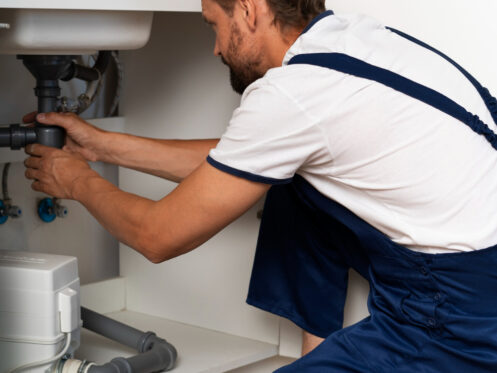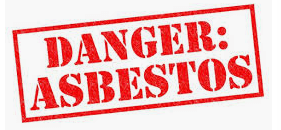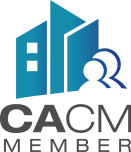Trying to find a commercial plumbing inspection near you that you can actually trust? Getting a professional inspectionis really the best way to catch sneaky plumbing problems before they snowball into expensive headaches for your business. A solid inspection keeps things running and shields your property from surprise damage.
If you go with Splash Plumbing, you’re getting a crew with over 25 years of experience helping Orange County businesses. They’re quick, upfront, and pay close attention to making sure your plumbing passes all safety and code checks. Whether you’re after routine maintenance or a deep dive into your sewer lines, they’ll handle it.
Inspections help with backflow prevention and leak detection too. Both are crucial for keeping your water clean and sidestepping health issues. With pros on your side, you can stay ahead of plumbing trouble and focus more on running your business instead of worrying about pipes.
What Is a Commercial Plumbing Inspection?
A commercial plumbing inspection checks out your building’s pipes, drains, and water systems. The inspector looks for leaks, blockages, worn-out bits, and anything else that could mess up your business. The point? Catch problems early and avoid expensive repairs later.
Purpose of Commercial Plumbing Inspections
The big goal here is to spot issues before they blow up into emergencies. Inspections keep your plumbing working well and make sure you’re following local rules. Plumbers look for leaks, corrosion, or blockages that could waste water or cause damage.
They also check that backflow preventers and other safety devices are doing their job. This protects your water from getting contaminated. Regular inspections can save you money and help your plumbing last longer.
How Inspections Differ for Commercial Properties
Commercial plumbing isn’t anything like what you have at home—these systems are bigger and way more complicated. There are larger pipes, several water sources, and specialized gear like fire sprinklers.
Inspectors have to check more things: sewer lines, water heaters, backflow devices, you name it. Sometimes they’ll use video cameras to peek inside pipes without tearing things up. Plus, they need to make sure you’re following health and safety codes that businesses can’t ignore.
Since commercial buildings see more use, inspections happen more often to avoid major disruptions.
Common Types of Commercial Plumbing Systems
Most commercial properties have a mix of plumbing systems, such as:
- Water supply for drinking, cooking, and cleaning
- Wastewater and sewage disposal
- Fire suppression systems
- Backflow prevention devices
Each one needs its own inspection approach. Fire sprinkler pipes, for example, need checks for leaks and pressure. Backflow devices have to be tested regularly to keep water safe.
If you want a thorough job tailored to your building, working with a company like Splash Plumbing is a smart move.
Why Regular Commercial Plumbing Inspections Matter
Keeping your plumbing in shape is a must for any business. Inspections help you catch issues early, stay on the right side of the law, and protect everyone in your building.
Prevention of Costly Repairs
Regular inspections find little problems before they turn into budget-busters. Checking for leaks, clogs, or bad valves now can save you from emergency repairs later.
Plumbers look for wear, corrosion, or blockages. Fixing these sooner rather than later can save your walls and floors from damage and prevent water waste. Plus, you avoid those annoying disruptions to your workday.
You can set up inspections once a year or more often, depending on your building. Keeping maintenance records helps track what’s been done and what still needs attention.
Ensuring Business Compliance
Local laws usually require regular plumbing inspections, especially for commercial properties. This includes backflow testing, which keeps dirty water out of your clean supply.
If you skip these requirements, you could face fines or even get shut down. Inspections make sure you’re following health and safety codes and help keep your business’s reputation intact.
A reliable plumbing service in Anaheim like Splash Plumbing will help you stay compliant and provide the paperwork you’ll need for local authorities.
Protecting Tenant and Employee Safety
Plumbing trouble can put tenants and employees at risk. Contaminated water, leaks that cause mold, or sewage backups all make for unsafe and uncomfortable conditions.
Routine inspections keep water flowing right and prevent cross-contamination. Annual backflow preventer tests, for example, help keep dirty water out of your system.
You’ll also lower the risk of slips or falls from leaks. Keeping your plumbing healthy shows you care about everyone in the building. That means happier tenants and fewer complaints.
Signs Your Business Needs a Plumbing Inspection
Not sure if it’s time for a plumbing inspection? Some problems hide until they become disasters. Watching for these signs can save you a lot of hassle (and cash).
Visible Water Damage
Spot water stains on your ceiling or walls? That’s a big red flag. Usually, it means there’s a leak inside the pipes or maybe from the roof. Even tiny leaks can lead to mold or weaken your building.
Look for peeling paint or warped spots around bathrooms and kitchens—classic signs of hidden leaks. If you notice wet patches on floors or carpets, don’t wait around. Call a plumber. Early fixes stop expensive water damage.
Unexplained Water Bills
A sudden jump in your water bill? Probably a hidden leak. You might not see anything, but water’s leaking somewhere—a busted pipe, a leaky faucet, or maybe something underground.
Keep an eye on your bills. If your usage climbs for no good reason, it’s time for a checkup. Catching leaks early keeps bills down and prevents bigger headaches.
Recurring Drain Issues
Clogged drains or slow drainage that keeps coming back? That’s not normal. Sure, hair or grease can block pipes, but constant trouble could mean pipe damage or sewer line issues.
You might hear gurgling or notice bad smells. These are signs your system’s struggling and could back up soon. A professional with video equipment can spot blockages or breaks that need fixing.
Catching these issues early and calling a trusted plumber like Splash Plumbing helps keep your business running. They’ll find the problems before things get out of hand.
What to Expect During a Commercial Plumbing Inspection
When you set up a commercial plumbing inspection, expect a careful look at your building’s plumbing. Technicians focus on trouble spots, using special tools to find leaks, clogs, or broken parts. Knowing what happens can help you get ready and ask the right questions.
Inspection Process Overview
The plumber starts with a visual check—pipes, valves, fixtures—looking for damage or leaks. Then they’ll run water and test drains to see if things flow like they should.
After that, they check water pressure throughout the system to find weak spots or flow problems. If you have backflow preventers, those get pressure-tested to make sure nothing nasty can flow back into your clean supply.
You’ll get notes and maybe some repair suggestions. Expect a clear report and advice on what to do next.
Areas Typically Inspected
The plumber usually checks:
- Pipes and joints: looking for leaks or rust
- Drain lines and sewer connections: finding blockages or backups
- Backflow prevention devices: making sure you’re following the rules
- Water heaters and pressure regulators: checking for proper function
- Valves and fixtures: spotting damage or anything that messes with water flow
They’ll pay extra attention to spots that often have issues, like kitchens or restrooms.
Tools and Equipment Used
Here’s what they might use:
- Video cameras to peek inside pipes for cracks or clogs
- Pressure gauges to test water pressure and backflow devices
- Leak detectors for finding hidden moisture or leaks
- Hydro-jetting gear to clear out tough clogs
- Inspection mirrors and flashlights for tight or dark spaces
These tools help make sure nothing gets missed. In Anaheim, CA, Splash Plumbing uses up-to-date gear to get inspections done right and fast.
How to Choose the Right Commercial Plumbing Inspector Near You
Finding a solid commercial plumbing inspector means checking their credentials, experience, and what real customers say. These things matter if you want your plumbing checked properly.
Licensing and Certifications
You need someone fully licensed and certified in your state. That means they know the local rules and the technical side of plumbing.
Ask if they have special certifications for commercial plumbing or backflow prevention—commercial systems are a different animal compared to homes.
Don’t be shy about asking for proof of their licenses and certifications. A licensed inspector follows safety laws and gives you peace of mind.
Experience With Commercial Properties
Not every plumber knows commercial plumbing. Look for someone who’s worked on buildings like yours—offices, hotels, restaurants.
Experienced inspectors spot things others might miss, like sewer backups or drainage issues. They also know how past repairs can affect your system.
Ask what types of commercial properties they’ve handled. Someone familiar with your setup will give you a better inspection.
Customer Reviews and Testimonials
What do other clients say? That’s huge. Check online reviews or ask for testimonials.
Look for comments about their punctuality, communication, and how thorough they are. Did customers like their follow-up and advice?
If you see a lot of positive feedback, odds are you’re dealing with someone reliable. Splash Plumbing, for example, has built a reputation for quick, attentive service.
Commercial Plumbing Inspection Checklist
A commercial plumbing inspection should cover the essentials: pipes and fixtures, backflow devices, and heating units like water heaters and boilers. Knowing what’s on the list helps you keep your plumbing safe and working.
Pipe and Fixture Assessment
Check all visible pipes for leaks, cracks, or rust. Make sure joints and connections are tight. Any drips or puddles? That’s a sign you need repairs.
Look at faucets, toilets, and valves. They should work right and not waste water. Leaky fixtures can cause big trouble over time.
Don’t forget water pressure. Too high or too low can wreck pipes or mess with water flow. You might need a pressure regulator if the pressure’s all over the place.
Keeping pipes and fixtures in good shape helps prevent problems and keeps your water clean.
Backflow Prevention Checks
Backflow preventers stop dirty water from sneaking into your clean supply. Inspect these carefully.
Look for any wear, cracks, or damage. Test backflow preventers regularly to make sure they work and meet local laws. In California, for example, commercial properties need annual backflow testing.
If you don’t keep up with these, you could face fines or risk water contamination. Hold onto documentation for each test and repair—city inspectors might ask for it.
Water Heater and Boiler Inspection
Take a look at your water heater and boiler for leaks, rust, or anything that seems off. Odd noises or smells might mean trouble—don’t just ignore them.
Check the pressure relief valve yourself if you can. It’s a small part, but it keeps your heater or boiler from turning into a hazard.
Set the temperature just right—not too high, not too low. Going too hot can waste energy and even cause burns, but too low and you might not get enough hot water.
With boilers, make sure there’s proper venting and check for corrosion inside the tank or pipes. A little routine maintenance goes a long way toward keeping these units safe and lasting longer.
If you’re in the Anaheim area, Splash Plumbing is around to help you with these inspections and keep your commercial property’s plumbing in good shape.
Inspection Report and Recommendations
After your commercial plumbing inspection, you’ll get a detailed report showing the condition of your plumbing system. This report points out what issues are there and what repairs or maintenance you should think about. You’ll get clear steps for keeping your system working right.
Understanding Your Inspection Results
The report breaks down each part of your plumbing system. You’ll see notes about leaks, blockages, or worn-out parts. Sometimes there are video inspection results, so you can actually see inside pipes and spot cracks or roots causing problems.
You’ll find info on backflow preventers too, which matter for water safety. If repairs or replacements are needed, materials and part numbers might be listed to help you plan ahead.
Knowing exactly what’s wrong lets you focus on the repairs that matter most, so you don’t get caught off guard by sudden breakdowns.
Recommended Next Steps
The report usually spells out what to do next. Maybe you’ll need to fix serious leaks or damaged pipes right away. Other times, it’s more about routine stuff like cleaning drains, checking valves, or testing backflow preventers every year.
Keep a copy of your report. It’ll come in handy for future inspections or when you’re scheduling maintenance. If you’re working with Splash Plumbing, they’ll walk you through the findings and talk about costs and timing for any work.
Cost Factors for Commercial Plumbing Inspections
When you’re looking into commercial plumbing inspections, prices can be all over the place. It depends on your property’s size, the type of inspection, and how tricky it is to reach plumbing parts. Understanding what bumps up the price and how to get a clear quote helps you plan ahead.
Variables Affecting the Price
The biggest thing? Size and complexity. Bigger buildings with lots of pipes and fixtures take more time. If your system has tough-to-reach areas or needs fancy gear like a sewer camera, expect to pay more.
Where you’re located matters, too. In Anaheim and nearby, rates shift based on labor costs and demand. Emergency or after-hours inspections usually cost extra.
If your plumbing is already in rough shape or repairs pop up during the inspection, that’ll drive the cost up. On the other hand, regular inspections can actually save you money by catching problems early.
How to Request a Quote
Reach out to a plumbing company with details about your building—size, age, any known issues. The more info you give, the better your estimate will be.
Ask if the quote covers everything, like camera checks or leak detection. Also, double-check if there are extra fees for emergencies or after-hours work.
If you’re near Anaheim, Splash Plumbing gives detailed quotes based on your property. Just call or email them with your info, and they’ll lay out the costs with no hidden surprises.
Scheduling and Preparing for a Plumbing Inspection
Booking a plumbing inspection at the right time—and getting your place ready—can save you a headache (and some cash). When you’re prepared, the plumber can work faster and spot more.
Best Times to Schedule Inspections
Try to schedule inspections during your business’s slow periods. That way, you’re not disrupting your daily routine. Early mornings, weekends, or even holidays sometimes work best.
Don’t wait until something’s wrong. Getting things checked every 6 to 12 months helps catch leaks, corrosion, or clogs before they turn into emergencies. If your building uses a ton of water or has old plumbing, you might want inspections more often.
Think about scheduling before renovations or seasonal weather changes, especially if your pipes are exposed to temperature swings. It’s a good way to avoid surprise repairs.
How to Prepare Your Business
Clear paths to all the plumbing—basements, crawl spaces, utility rooms. Move boxes or equipment so the plumber can get to pipes, drains, valves, and water heaters without hassle.
Let your staff know about the inspection so they can avoid using sinks, toilets, or other fixtures while the plumber’s working. It speeds things up.
Pull together any old plumbing maintenance records and jot down any issues you’ve noticed. It helps the plumber focus on problem spots. Also, be aware of what typically goes down your drains—sometimes habits cause clogs or damage.
If you’re in Orange County or close by, Splash Plumbing can help you schedule and handle a thorough inspection.
Long-Term Benefits of Routine Plumbing Inspections
Scheduling regular plumbing inspections? Honestly, it’s one of those things you’ll thank yourself for. You catch little problems before they blow up into expensive disasters. Early checks spot leaks, corrosion, or blockages, saving you a pile of money in the long run.
Staying on top of inspections keeps your plumbing running better—steady water pressure, fewer clogs, less chance of a surprise breakdown messing with your business.
Taking care of issues early means your pipes and fixtures last longer. You’re less likely to face a full replacement down the road. That’s less stress and more reliability for years to come.
Some key benefits:
- Prevent costly emergencies by catching leaks or wear early
- Boost water efficiency and cut down on waste
- Keep water quality safe by making sure valves and filters work
- Protect your building from hidden leaks and water damage
Splash Plumbing helps commercial properties stay ahead with regular inspections. Their team checks everything from backflow preventers to sewer lines.
Investing in routine plumbing inspections means fewer nasty surprises and better control over your maintenance budget. You get peace of mind knowing real pros are looking out for your system.
Frequently Asked Questions
Trying to keep your commercial plumbing in shape? It helps to know what to expect. Regular checkups, timing, spotting warning signs, and dealing with permits all matter if you want to avoid big headaches.
What’s included in a commercial plumbing inspection?
A typical inspection covers pipes, drains, water heaters, valves, and backflow preventers. The plumber checks for leaks, clogs, corrosion, and makes sure you’re up to safety codes. You’ll probably get tests like backflow testing to keep water clean and safe.
How often should commercial plumbing systems be inspected?
Most pros say once a year is a good rule of thumb. Annual checks catch small issues before they get out of hand. If your system gets heavy use, you might need more frequent visits.
What are the signs that my building needs a plumbing inspection?
Watch for slow drains, weird noises, low water pressure, or bad smells. If your water looks odd or your bill suddenly jumps, it’s probably time to call a plumber.
Can you recommend a certified plumber for inspections in my area?
If you’re near Anaheim, CA, Splash Plumbing offers trusted commercial plumbing inspections. They’ve been around a while and handle everything from backflow prevention to system maintenance.
What is the process for obtaining a plumbing permit for my business?
Usually, you’ll need to submit plans to your local building department. They’ll review everything to make sure it’s up to code. Once approved, you get the permit and can start work. City rules can vary, so always double-check with your area.
How do I renew my plumbing license in the city of Cincinnati?
To renew your plumbing license in Cincinnati, you’ll need to finish any required continuing education and send in your application along with the fee. Stay on top of the local rules and pay attention to the deadlines—missing them can lead to fines or headaches nobody wants. Honestly, the best move is to check with Cincinnati’s licensing board for the latest details, since they sometimes update the process or requirements.












